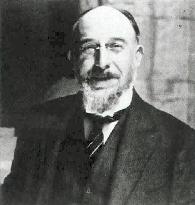 Erik Satie born 17 May 1866 (d. 1925)
Erik Satie born 17 May 1866 (d. 1925)French composer and pianist Erik Satie, was a pioneer of classical music whose ideas were to have a tremendous influence on 20th century modernism.
A contemporary of Ravel and Debussy, he would later go on to work with Jean Cocteau to create the ballet Parade (1917) for the Ballet Russes, with set designs by Pablo Picasso and choreography by Leonide Massine. He knew, worked with or influenced most of the artists and writers and musicians who frequented Paris when it was the undoubted cultural hub of the world. Although sometimes credited with being the precursor of practically every avant-garde movement of the 20th century, he was genuinely influential in the fields of minimalism and ambient music, the use of prepared piano and music-to-film synchronisation.
Despite all this, he was an incredibly private and eccentric man - known to enter a room and sit without removing his hat, coat or gloves, and always with a brand-new umbrella. He is thought to have been homosexual because of the company he kept, but he appears to have mostly lived an asexual life.
After his funeral 1925, his friends entered the tiny room he had occupied for 27 years but had never allowed anyone else to enter. Apart from dust and cobwebs, they found huge quantities of umbrellas - many never used - as well as large numbers of unknown compositions hidden all over the room.